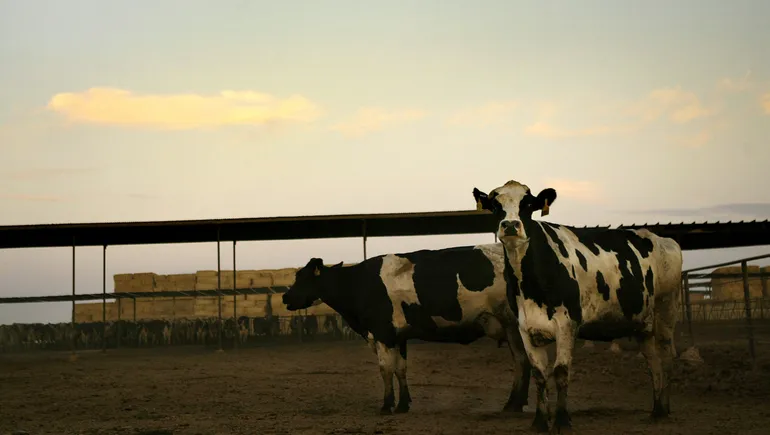Several states have restricted cattle imports as concerns mount over the increasing spread of bird flu in dairy cows.
Maryland on Wednesday became one of at least 18 states to limit interstate movement of dairy cattle as the virus moves beyond the Southwest and affects herds in multiple states.
“Maryland is home to a robust dairy and cattle genetics industry,” Kevin Atticks, the state’s agriculture secretary, said in a statement. “This order acts as another layer of protection for our Maryland farmers and ag industry partners.”
The U.S. Department of Agriculture has yet to issue federal quarantine orders, and the agency’s Animal and Plant Health Inspection Service is not recommending that states hold cattle shipments.
“However, we strongly recommend minimizing movement of cattle as much as possible, with special attention to evaluating risk and factoring that risk into movement decisions,” USDA said in guidance published April 2.
So far, the virus has emerged in more than 20 dairy herds across seven states, according to a tracker on the USDA’s website. Most recently, a detection in livestock was confirmed for the first time in North Carolina.
Import restrictions vary by state, though most have quarantine measures in place for failure to comply. Maryland’s rule prohibits dairy cattle imports from states with a confirmed detection of avian flu except under certain conditions.
According to the USDA and Food and Drug Administration, there is currently no risk to the U.S. milk supply due in part to pasteurization, which would kill the virus. The risk of avian influenza spreading to the general public remains low. However, a farm worker recently tested positive for the virus after contact with affected cattle in Texas.
As bird flu spreads, key trading partners Canada and Mexico are keeping a close eye on how avian influenza affects U.S. cattle. Symptoms in affected cattle can range from reduced milk output and fever to loss of appetite and thicker milk consistency.
As a precaution, Mexico’s Ministry of Agriculture and Rural Development took steps to increase passive surveillance and reinforce the clinical inspection of cattle from the U.S.
States with dairy cattle restrictions in place include Alabama, Arizona, Arkansas California, Delaware, Florida, Hawaii, Idaho, Kentucky, Louisiana, Mississippi, Nebraska, North Carolina, Pennsylvania, Tennessee, Utah and West Virginia., according to the American Veterinary Medical Association.

